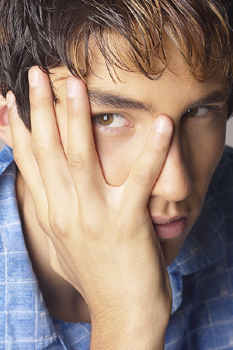How to Treat Acne
Acne is a common skin disorder characterized by areas of the skin that contain multiple non-inflammatory markings. These markings are referred to as pimples, and they can occur anywhere on the human body. Pimples are most commonly found on the face, neck, bank, and chest.
Acne is an affliction which most commonly affects teenagers who have naturally oily skin and are going through intense hormonal changes. Many adults suffer from acne their entire lives too. Acne can be embarrassing, unappealing, and uncomfortable. Here are some common acne treatments.
- Topical Bactericidals – One of the most common treatments of acne are over the counter topical bactercidals. These topical ointments are either gels or creams and contain benzyl peroxide, which helps clean out the pores. These products are inexpensive and often have successful results, although the products mainly work by drying out the skin as opposed to preventing bacteria buildup. Constantly drying out the skin can cause other irritations which can be more difficult to get rid of than acne.
- Oral Antibiotics – Oral antibiotics are sometimes prescribed by physicians, and they’re considered the most effective way to treat acne. These antibiotics work to prevent the build up of oil on the skin. But oral antibiotics often become less effective in preventing bacteria and acne over time. Oral antibiotics also often lead to side effects, which include causing stomach pains weakening the affect of oral contraception pills.
- Topical Antibiotics – Another popular form of acne treatment are topical antibiotics. Topical antibiotics, the most common of which are erythromycin and clindamycin, kill the bacteria and oils that are blocking follicles. This treatment option is often preferred because it does not come with the same side effects that oral antibiotics come with, but its effectiveness is often diminished when used on areas larger than the face.
- Oral Retinoids – A daily oral consumption of isotretinoin, which is a vitamin A derivative, for a period of up to 6 months can have long-term positive affects on the reduction of acne. Studies show that the consumption of isotretinoin works by preventing the glands from producing unnecessary oils. Almost 80% of patients who have taken oral retinoids have had long lasting success after they stop taking the drug, although 25% of patients begin to re-grow acne after staying off the drug for a month.
- Hormone Therapy – A popular treatment for acne is cortisone hormone therapy. In this treatment a doctor will inject a shot of cortisone into a pimple, which immediately reduces the pimple’s swelling and redness. While this does not prevent future acne growth, it does reduce pimples to a point where they can be easily covered with makeup.

How to Treat Acne
- Proper Hygiene – One natural way to treat acne is to have proper hygiene. By washing your skin each day, you can help prevent the buildup of oils which eventually causes acne. Some believe wearing clean clothes and sleeping on clean sheets will also prevent bacteria and oil from getting into your skin and clogging pours.
- Eat Less Sugar – Another way to treat acne is to improve your diet. Studies have shown that diet has one of the largest impacts on overall acne production. Foods high in sugar (including soda, candy, and white breads) release blood glucose which then releases insulin, which eventually will lead to acne development.
- Take Vitamins – Recent studies have suggested that consuming more of the right vitamins could help treat acne and prevent future acne development. These studies have shown that people with acne tend to have lower levels of Vitamin A in their bloodstream than normal people. People with severe acne often have low levels of Vitamin E. Therefore, some experts believe that consuming foods rich in Vitamin A and E could help treat acne.
